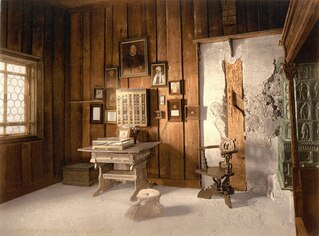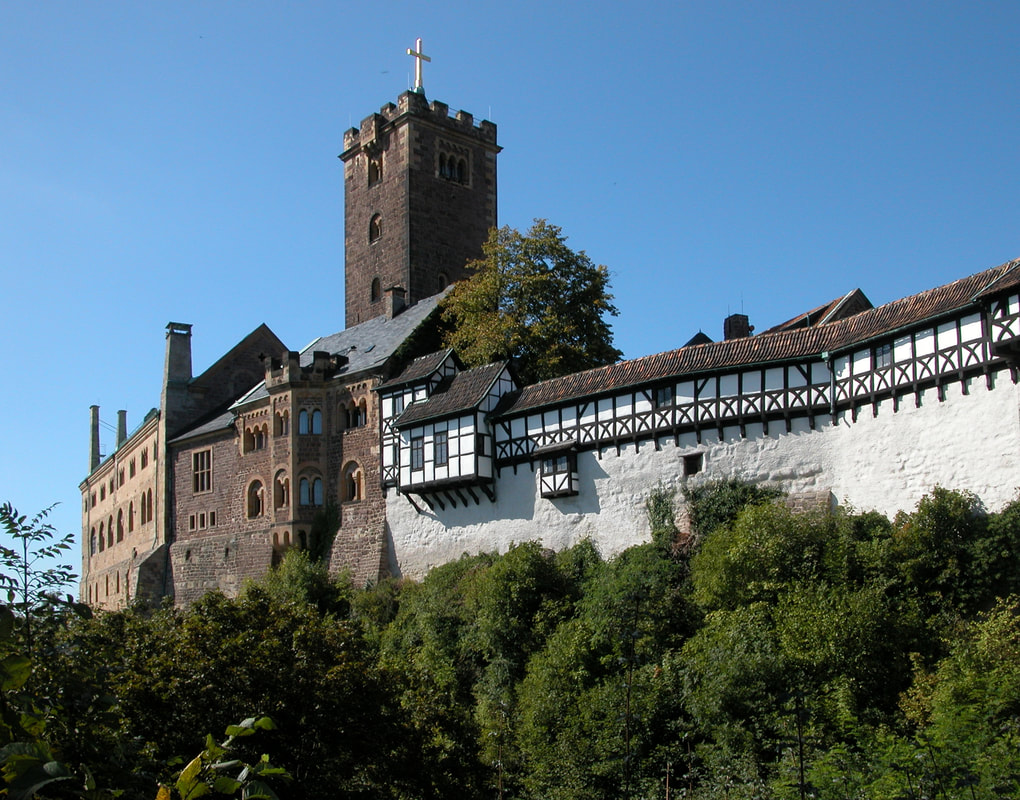|
My blog posts revolve around my interests and vocation as a historian: the intersection of history and contemporary church life, the intersection of history and contemporary politics, serendipitous discoveries in archives or on research trips, publications and research projects, upcoming conferences, and speaking engagements.
I sometimes blog for two other organizations, the Canadian Baptist Historical Society and the Centre for Post-Christendom Studies. The views expressed in these blogs represent the views of the authors, and not necessarily those of any organizations with which they are associated. |
|
The great sixteenth-century German reformer Martin Luther should have been the one to quip “never let a good crisis go to waste.”[1]
In 1521, Luther was whisked away by his supporters to hide him from the prying eyes of the emperor’s secret police or any other opportunistic bounty hunter. Luther had just become an outlaw for refusing to recant at the Diet of Worms, and as a result he had a price on his head payable to anyone who turned him into the state. His supporters took him to the Wartburg Castle, and there Luther stayed in hiding for just under a year. He did not choose to go. He did not want to go. He did not enjoy being there. But he adapted and made the best of it. In fact, that year in lockdown played a critical and formative role in his ministry. The parallels with today’s pandemic lockdown are similar in a number of ways:
Yet at the same time he set his mind to accomplish things he could not have accomplished had he stayed in the public eye and faced the constant pressures of parish life. The solitude – as much as he did not want it – was exactly what he needed to prepare foundational texts and theological convictions for what was to come. His translation of the New Testament into the German language was one of the greatest accomplishments of his life - and it began at the castle. The obvious application is for us to ask ourselves what we can do in our own “Wartburg Castle.”[2] We have not asked to be locked down, but perhaps we can use the time to accomplish something(s) that we could not have done otherwise. Solitude is hard – as Luther could attest – but perhaps there is something we can do, or learn, or create, or write, or play, or research, or even become, in our solitude that would not have been possible if the hustle and bustle of life did not stop. And lockdown happen. Luther eventually was able to leave Wartburg Castle, and then spent the next two and half decades in never-ending struggles in life and ministry. Lockdown will eventually end for us too, and we will walk out of our own “Wartburg Castle” to face what awaits. In the meantime, let us, like Luther, use our lockdown for great things. [1] It was Winston Churchill. [2] The idea of our lockdown being similar to Luther’s at Wartburg came about through a conversation this week with my friend Dr. James Robertson, a professor at Tyndale University.
0 Comments
Leave a Reply. |
Archives
May 2024
|


 RSS Feed
RSS Feed
